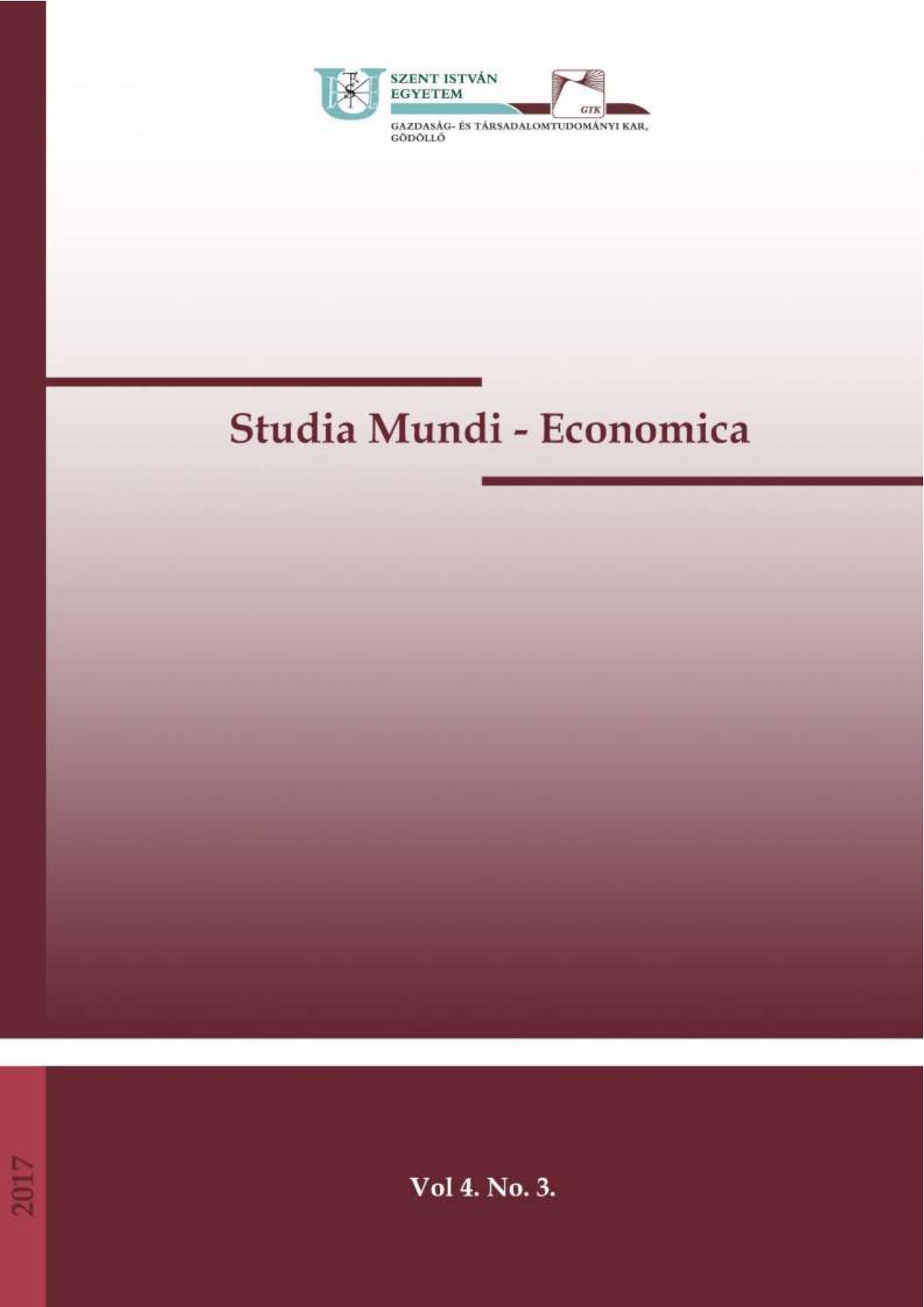SMART settlement models based on international and hungarian initiatives - possible development paths for peripheral areas
DOI:
https://doi.org/10.18531/Studia.Mundi.2017.04.03.57-66Keywords:
SMART közösségek, élhetőbb vidék, SMART kezdeményezésekAbstract
In terms of the Earth as a whole, the proportion of urban inhabitants exceeds half of the current population of the Earth, which proportion is likely to rise (based on preliminary estimates) in the future. In addition to the concept of SMART Cities, in May 2017, a pilot project called SMART Village was launched in the countryside. In both cases, the first step for the participants of the project was to define the exact definition, as well as good practices and models that can be used on the field. In this paper, we aim to review the conceptual delimitation of the SMART criteria and the available online database and how it can be adapted in Hungary. A number of SMART cities have launched territorial initiatives that can provide a good basis for implementing effective Integrated Urban Development Strategies for the future. In contrast, for SMART villages, the primary goal at the beginning in the current programming period is to create the SMART-Village reference points for which the financial resources will provided by the European Union. In this paper, we aim to find, interpret and define the SMART village, and to showcase Hungarian SMART initiatives through document analysis using "good practices" in Hungary (Alsómocsolád).
References
G Fekete É. (2006): Hátrányos helyzetből előnyök? FÖLDRAJZI KÖZLEMÉNYEK 2006. 1-2: pp. 55-66.
Kassai Zs. – Molnár M. (2016): The social success factors of local rural development In: Ritter K (szerk.) Economic and local aspects of rural development. 117 p. Gödöllő: Szent István Egyetemi Kiadó, 2016. pp. 108-117. ISBN:978-963-269-550-1
Káposzta J.- Ritter K. – Nagy H. (2016): Local Economic Development in Transition Economies: A Tool for Sustainable Development of Rural Areas In: Vasily Erokhin (szerk.) Global Perspectives on Trade Integration and Economies in Transition. 361 p. Hershey: IGI Global, 2016. pp. 281-298. ISBN:9781522504528
Nagy A. – Sain M. – Sárdi A. – Vaszócsik V. (2015): Településértékelés és monitoring, módszertani javaslat, Lechner Tudásközpont, Budapest, 2015. http://lechnerkozpont.hu/doc/okos-varos/telepulesertekeles-es-monitornig-modszertani-javaslat.pdf
Nagy Z. - Tóth G. - Péter Zs. - Szendi D. - Pál Zs. - Leskó A. - Tóthné Kiss A. (2015): Smart Local Community kezdeményezések lehetőségei vidéki térségekben –Borsod- Abaúj-Zemplén megye három járásának példáján keresztül, Észak-magyarországi Stratégiai Füzetek, XII. évfolyam 2.szám, Miskolc, 2015. 59.-71. p.
Oláh I.- Ritter K,.-Tóth T. (2013): he role of local communities in the disadvantaged rural areas In: Szendrő Katalin, Soós Mihály (szerk.) Proceedings of the 4th International Conference of Economic Sciences. 595 p. Konferencia helye, ideje: Kaposvár, Magyarország, 2013.05.09-2013.05.10. Kaposvár: Kaposvár University, 2013. pp. 547-553. (ISBN:978-963-9821-62-0)
Rab J. – Riedel M. – Steiner B. (2015): SMART City Példatár, Lechner Tudásközpont, Budapest, 2015. http://lechnerkozpont.hu/doc/okos-varos/smart-city-peldatar.pdf
Tóth T. - Káposzta J. (szerk.) (2014): Tervezési módszerek és eljárások a vidékfejlesztésben (elmélet) Gödöllő: Szent István Egyetemi Kiadó, 2014. 163 p. (ISBN:978-963-269-407-8)
Virág Á. (2017): A turisztikai együttműködések hatékonysága a vidéki térségekben In: Ritter Krisztián (szerk.) Vidékgazdasági tanulmányok. 120 p. Gödöllő: Szent István Egyetemi Kiadó, 2017. pp. 43-54.
UN World Urbanisation Prospects 2014.
http://okosvaros.lechnerkozpont.hu/hu
www.hvg.hu
www.terport.hu
Downloads
Published
Issue
Section
License
Copyright (c) 2017 Káposzta József , Némediné Kollár Kitti

This work is licensed under a Creative Commons Attribution-NonCommercial-NoDerivatives 4.0 International License.
A folyóirat Open Access (Gold). Cikkeire a Creative Commons 4.0 standard licenc alábbi típusa vonatkozik: CC-BY-NC-ND-4.0. Ennek értelmében a mű szabadon másolható, terjeszthető, bemutatható és előadható, azonban nem használható fel kereskedelmi célokra (NC), továbbá nem módosítható és nem készíthető belőle átdolgozás, származékos mű (ND). A licenc alapján a szerző vagy a jogosult által meghatározott módon fel kell tüntetni a szerző nevét és a szerzői mű címét (BY).






